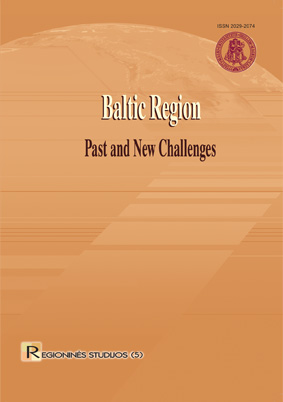How Human Rights Process is and Could be Studied. Lithuanian Case
How Human Rights Process is and Could be Studied. Lithuanian Case
Author(s): Regina JasiulevičienėSubject(s): Essay|Book Review |Scientific Life
Published by: Vytauto Didžiojo Universitetas
Keywords: human rights; institutionalisation; cultural context; žmogaus teisės; institucionalizacija; kultūrinis kontekstas
Summary/Abstract: Human rights process becomes a scientific fact for many scholars all over the world in our days. Human rights are studied from different scientific perspectives. Human rights have historical, sociological, anthropological, international and other, at first very strong legal, dimensions. It means that only multidisciplinary approach can be fruitfully used in human rights research. The acquaintance with natural law doctrine, their secularization in the seventeen century, equality, freedom or liberty ideas, the idea of reason is a basic condition for human rights process studies. Philosophical questions about human rights help to clarify key concepts and definitions and to justify moral arguments that support human rights, because the language of human rights is normative or ethical language. Very important level of human rights process and its research is the legal one. International human rights are now an integral part of public international law. For the political scientist community, which is engaged in human rights research, the most important is perspective of comparative politics. Comparison is a very fruitful way in both, empirical and normative human rights research fields. Differences in political ideologies, religions and the variety of historical events, that have made difficulties in secure general agreements, and to reach common norms of human rights all over the world can be explain by comparison. Comparing human rights practices is an essential tool for understanding sources of abuse and reform. Unfortunately, it is not the case of Lithuania. Legal and State (public authority) texts on human rights field are prevailed. Impartial academic human rights process research is at very shy beginning in Lithuania. The aim of this paper is to point out some peculiarities of human rights process in Lithuania and to show some gap in this process research. Šiuolaikinis žmogaus teisių procesas yra tapęs rimto mokslinio tyrinėjimo objektu. Žmogaus teisių įvairiapusis reiškinys yra tyrinėjamas iš filosofinės, istorinės, sociologinės, antropologinės, politologinės, teisinės ir tarptautinių santykių perspektyvų. Filosofinė perspektyva padeda atskleisti prigimtinės teisės doktrinos ir jos sekuliarizacijos reikšmę formuojantis laisvės ir lygybės idėjoms, kurios yra žmogaus teisių sampratos pamatas. Normatyvinė ir etinė žmogaus teisių „kalba“ turi filosofinį pagrindą. Labai svarbus yra teisinis žmogaus teisių tyrinėjimo aspektas, nes žmogaus teisės tapo tarptautinės viešosios teisės dalimi. Politologams, tyrinėjantiems žmogaus teisių procesą, svarbiausia yra lyginamoji perspektyva. Lyginimas labai svarbus ir empiriniam, ir normatyviniam žmogaus teisių tyrinėjimui. Politinių ideologijų, religiniai, istorinės patirties skirtumai, kurie yra pagrindinė kliūtis įgyvendinti žmogaus teises tarptautiniu mastu, atskleidžiami juos lyginant ir įvertinant jų poveikį ir reikšmę. Žmogaus teisių praktikos palyginimas leidžia suvokti jų pažeidinėjimo priežastis.
Journal: Regioninės studijos
- Issue Year: 2010
- Issue No: 5
- Page Range: 77-88
- Page Count: 12
- Language: English

